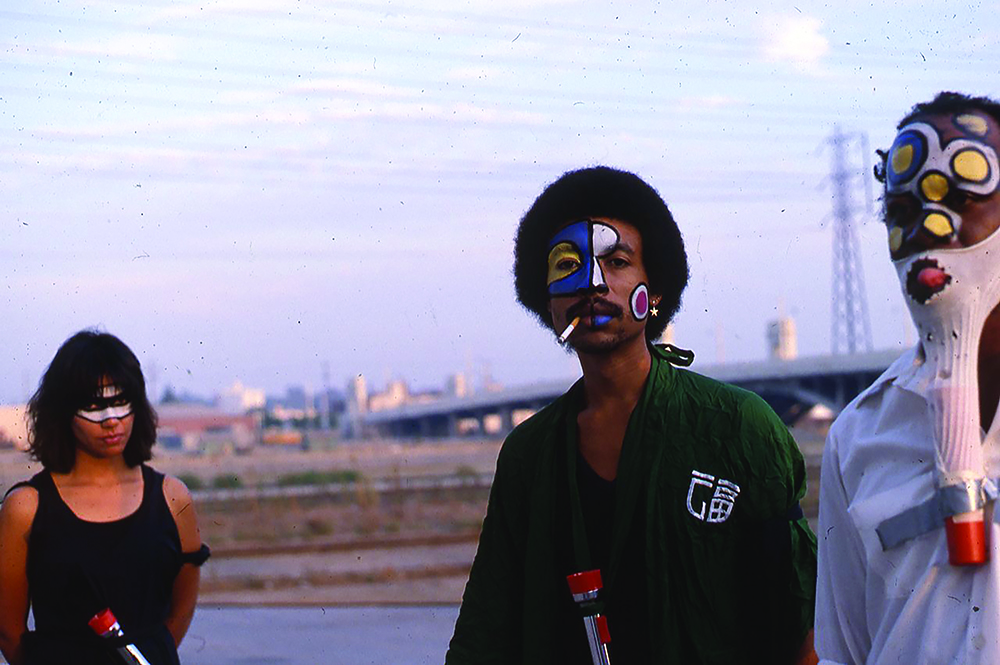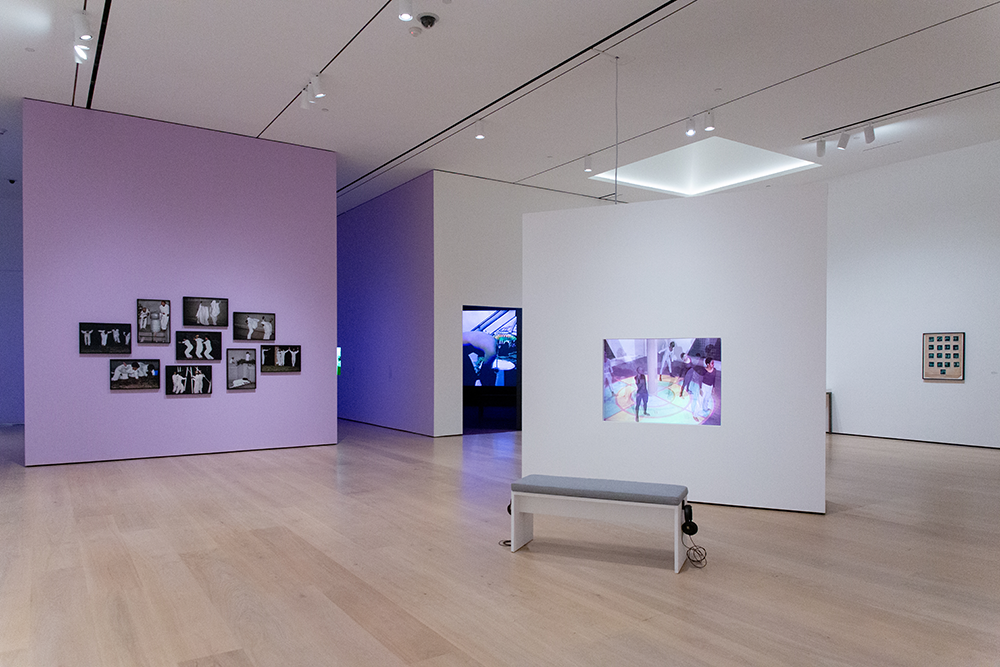Your cart is currently empty!
Ulysses Jenkins Hammer Museum

Ever had your memory moonwalk? Such a notion is possible after experiencing Without Your Interpretation, the Ulysses Jenkins multiverse at the Hammer Museum, a retrospective comprised primarily of video and performance art covering five decades. Putting soul in conceptualism, Jenkins interrogates the myopic paradigms and mass-media influenced understandings, reconfiguring prior knowledge related to Blackness and ultimately, humanness.
In his video, “Remnants of the Watts Festival (1972–73)” Jenkins interviews the late Cecil Fergerson, whose iconic arts activism led him to co-found the Black Arts Council (BAC) in the ‘60s while employed at the Los Angeles County Museum of Art (LACMA). Later promoted to assistant curator, he became the first African American in the history of Los Angeles to attain that position. The BAC exerted pressure on the museum to include programing that reflected and reached out to African American taxpayers. So, to watch Fergerson critically comment on how the control of the Watts Summer Festival was removed from community hands through the power of corporate funding revealed his visceral approach; he exposed how police presence at Black community events is rationalized by the state. Yet, to see footage of Black and Brown folk together at such a significant event echoed cultural solidarity. Its title, Remnants, signifies the relevance of knowledge of the past for informing the future.

Other video documentaries included King David (1978), a visit to the studio of artist, David Hammons, with LaMonte Westmoreland as commentator; and Momentous Occasions: The Spirit of Charles White (1977/1982, 19:41), a recording of his retrospective at the Los Angeles Art Gallery and his role as professor at Otis Art Institute. To see the work of these master artists was revelatory but to hear them discuss their objects and imagery is a recommended master class. Further expanding videographic boundaries were the “Dream City (1983)” performances (1983, 5.19 min) that re-imagines a metaphoric ritual in time and Without Your Interpretation (1984, 13:53), a rite of social crisis and survival. Like the central Key Maker character in the Matrix Reloaded (2003), in both works Jenkins welcomes all to open the door to his imaginative art-making process.
Of additional significance are Bequest (2002, 9:32) and Planet X (2006, 6:19). While the former addresses the purging of negative imagery aimed at Arabic diaspora by the United States and global community, the latter juxtaposes Planet X mythology with the horrific disaster of Hurricane Katrina in New Orleans. Both video works demonstrate Jenkins’ ability to assault and deconstruct dehumanizing mass-media narratives. To be sure, Without Your Interpretation, with its unapologetic and intentional intersectionality, inspires belief in the parallel universe of ideas. Ultimately, Jenkins’ unflinching experimentation with video and performance makes this exhibition an enveloping experience, like playing Marvin Gaye’s “What’s Going On” (1971) over and over, and over again.
Comments
One response to “Ulysses JenkinsHammer Museum ”
Really good prospective on Ulysses Jenkins art. Great article!